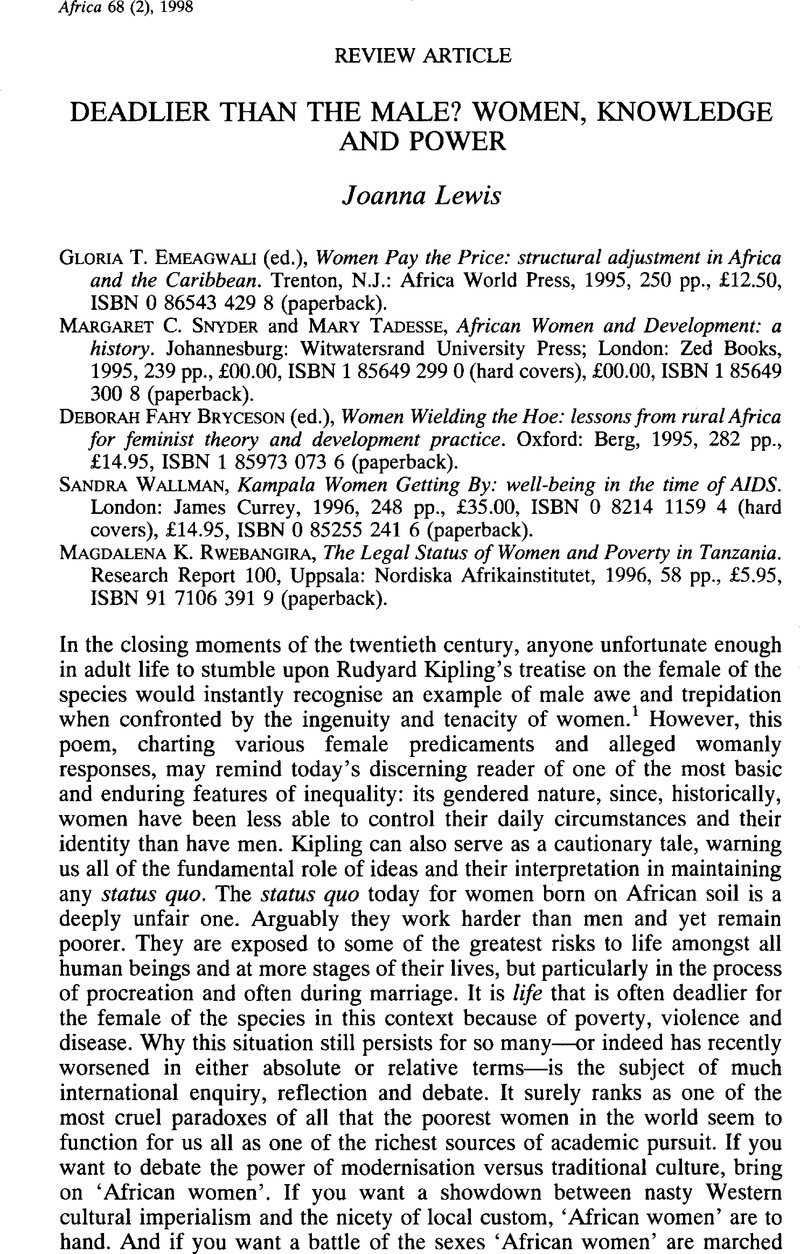Crossref Citations
This article has been cited by the following publications. This list is generated based on data provided by Crossref.
de Lame, Danielle
2000.
Genre et développement : bibliographie sélective 1.
Bulletin de l’APAD,
Nelms, Linda W.
and
Gorski, June
2006.
The Role of the African Traditional Healer in Women’s Health.
Journal of Transcultural Nursing,
Vol. 17,
Issue. 2,
p.
184.
Emuedo, Crosdel O
and
Emuedo, Okeoghene A
2014.
Oil activities, unsustainable environment and the combative reactionism of women in the Niger Delta.
African Journal of Political Science and International Relations,
Vol. 8,
Issue. 1,
p.
1.





